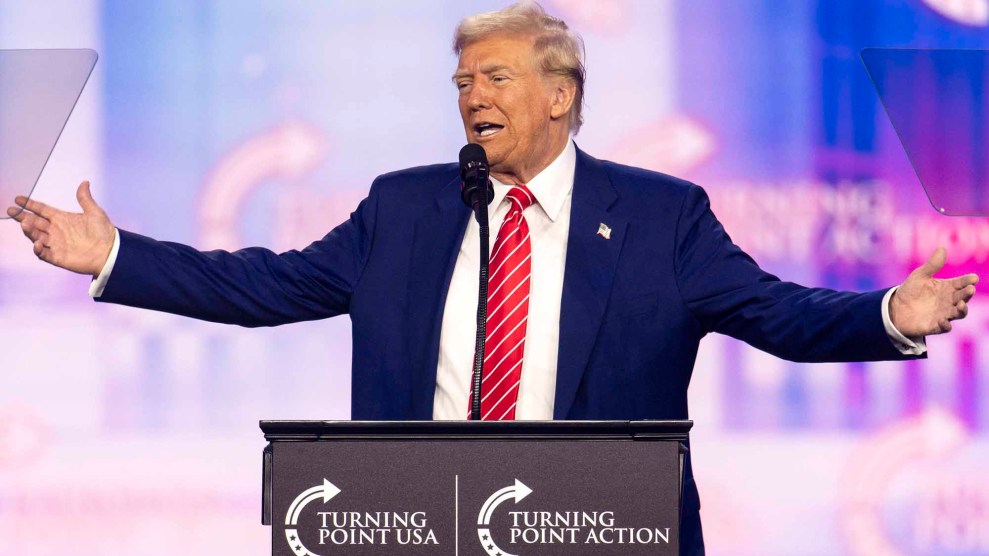There are few things in life I sincerely, deeply love. One of them is science. I love that it’s methodical. I love that it doesn’t purport to be perfect but rather a slow advancement toward truth. And I love that in science, unlike in many fields, a wrong idea isn’t necessarily a bad thing.
At least in the United States, people overwhelmingly trust scientists to act in the public’s best interest. That’s less true of business leaders or journalists or, least of all, elected officials. Trust in science is therefore a sharp tool in responding to public health crises like a pandemic. But over the past several months, once again, we’ve watched bad actors rapidly try to grind down that trust. And I’m tired of it.
The politicization of science isn’t exactly new. See: climate change, vaccines, evolution, the AIDS crisis, the CDC, conservation, heliocentrism, nutrition, wildfires, stem cells. But now, while we’re in the middle of a pandemic with more than 9 million cases in this country alone, politicizing scientific uncertainty has become incredibly, horrifyingly, dangerously easy.
In a 2015 paper, a pair of researchers from Georgia State and Northwestern Universities defined the politicization of science as emphasizing “the inherent uncertainty of science to cast doubt on the existence of scientific consensus.” Consensus, however, takes time to build, and in the case of a never-before-seen virus, when consensuses are still coming into focus, the door is basically wide open to what Merchants of Doubt authors Erik M. Conway and Naomi Oreskes dubbed “doubt-mongering.”
Republicans, mostly, have taken advantage of COVID uncertainty. “To date, most criticisms of COVID-19 models and science, more broadly, have emanated from the political right,” Cornell professors Sarah Kreps and Douglas Kriner write in a September study published in Science Advances on public trust and politicization in science. Statistical models, they write, have become a “flashpoint for debate” during the pandemic. In just one example, Fox News’ Tucker Carlson declared in an April segment about coronavirus case estimates, “At this point, we should not be surprised that the model got it wrong,” adding that an early model from the same institute “turned out to be completely disconnected from reality.” In another example, this one from May, a reporter asked Florida Gov. Ron DeSantis about a projection, and he said, “Has that been accurate so far? Have any of the models been accurate so far?” And during a Senate hearing the same month, Sen. Rand Paul (R-Ky.) blasted scientists for making “wrong prediction, after wrong prediction, after wrong prediction.”
This is beyond maddening. If you’ve ever asked a statistician about models (and who hasn’t?), you’ve probably heard the popular aphorism, “All models are wrong, but some are useful.” As one public health expert told me in July, models can help us understand the dynamics of a given process but aren’t observations of real events. “No model will accurately reflect reality,” he said. In essence, models aren’t perfect and no scientist expects them to be. Unfortunately, it appears no one shared this sentiment with Carlson or DeSantis or Paul.
Then there’s the president himself. I could devote an entire book to the anti-science rhetoric of Donald Trump, and it’s far from limited to statistical models, so I won’t go deeper here, but be sure to check out the extensive timeline my colleagues built chronicling his coronavirus denials.
While Republicans may be the primary perpetrators of scientific politicization, Democrats are not completely off the hook. Comments that seek to cast doubt on the scientific process—especially coming from Democrats—make a difference in public attitudes toward science. In their Science Advances study, for example, Kreps and Kriner, in a series of five experiments, presented statements about modeling data to more than 6,000 Americans. They found that when criticism came from Republicans, it had little impact on people’s trust in science, regardless of their party. But when criticism came from Democrats, it reduced the respondents’ trust in science.
Kreps and Kriner also tested a real-world example: When people read criticism from New York Gov. Andrew Cuomo (“They come up with all these projections, we’re going to do this in May, we’re going to do this in June, we’re going to do this in July. They have no idea.”), it eroded their support for relying on models and support for science generally. But participants’ attitudes were not affected when they read criticism from Sen. John Cornyn (R-Texas), who tweeted in April: “After #COVID-19 crisis passes, could we have a good faith discussion about the uses and abuses of ‘modeling’ to predict the future? Everything from public health, to economic … predictions. It isn’t the scientific method, folks.”
The Cuomo Effect is essentially a warning: “It suggests that the onus is on Democrats to be particularly careful with how they communicate about COVID-19 science,” Kriner said in a September press release. “Because of popular expectations about the alignments of the parties on science more broadly and on issues like COVID-19 and climate change, they can inadvertently erode confidence in science even when that isn’t their intent.”
In the science world, uncertainty isn’t a dirty word—in fact, the ability to say “we don’t know” is arguably one of science’s greatest strengths—but at a time when everyone is demanding answers, uncertainty is being used by political figures for their own benefit, and, possibly, at the expense of public trust in science. That’s not only irresponsible; during a pandemic, it’s deadly.
So, for the love of science, let’s leave the scientific debates to the experts. —Jackie Flynn Mogensen















